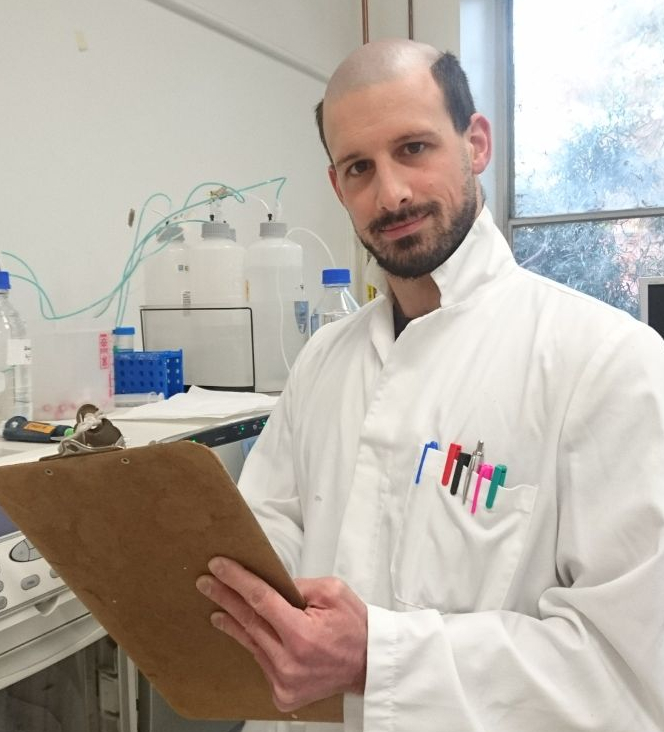Dr Marc Somssich: Humans of BioScience
Meet Marc Somssich, DECRA Fellow and leader of the Cell Wall in Plant Immunity Team in the Plant Cell Biology Research Group.
Alongside a busy research program, Marc shares his knowledge and passion for plant science history in a series of ‘Short history of…’ chapters. His most recent contribution is ‘A Short History of Plant Light Microscopy’.
Who are you and what’s your role in BioSciences?
I am currently an ARC DECRA fellow at the School, which puts me in a weirdly undefined position somewhere between a glorified postdoc and a pseudo group leader.

What problem are you trying to solve with your research?
My research is driven by curiosity, not the desire to solve a specific problem. I want to learn and understand how plants function on a molecular level. My research focus is to record and analyse the response of individual plant cells to an attack by the fungal pathogen Fusarium oxysporum. I have developed a microscopy-based system that allows me to live-image such responses, be it changes in gene expression or protein dynamics, in real-time. These reactions of the plant immune system are typically recorded on a larger scale (whole plant, whole tissue…), while the details are often lost. My system allows us to distinguish between the responses of individual neighbouring cells, thereby providing a much higher resolution. Eventually, I hope to describe in detail how, for example, a cell responds that is under acute attack versus a cell that is ‘warned’ by its neighbours of an impending attack. Or a cell that is damaged versus one that can already ‘sense’ the pathogen but is not damaged yet, and so on.
Tell us about the history of the plant series you’re working on
I started to write about plant science history when I realised that young students joining our lab were never taught anything about the historical context of our work. This includes very general things like why we work on Arabidopsis thaliana. It also goes hand in hand with some senior researchers saying that this old stuff is no longer relevant today. But I personally disagree with this.
I think that there are three main arguments why the history matters: First, if I understand why certain things in plant science are the way they are, I am better at troubleshooting, improving, and further developing them. Second, knowing the history gives you a better overview of ‘the big picture' and this allows you to better understand the details of contemporary research, helps to see where the field is moving toward, and where it needs to go in the future. And lastly, when reading (or writing) these articles, again and again, it becomes apparent how little findings, or even random, accidental findings, turned out to be incredibly relevant and game-changing in retrospect. It is not always obvious what will be important, or what potential lies within a certain development – you only see this in retrospect. I think this is a valuable realisation for young students and researchers, who may struggle to find relevance in their very specific, little research problem.
Interestingly, I get mixed feedback for my work. Some people tell me that I am wasting my time, since my articles are currently only published as preprints, not ‘real’ publications, and tell me that I should spend the time at my lab bench, rather than reading and writing. On the other hand, the majority of feedback I get from colleagues is usually positive and very encouraging. It is always great to see the positive response the articles get on Twitter! And on top of that, the articles have actually picked up a couple of citations too. But most encouraging is that I sometimes have students reach out to me via email or Twitter, telling me that they found my articles online and it helped them a lot in their studies. I also hear from colleagues using them as teaching material at their universities, telling me about feedback from their students, saying that the historical context is helpful for them to understand current research as well and that these stories are certainly more interesting and more memorable than textbook-based learning – as it provides much-needed context. Given that I set out writing these to help students in the first place, this kind of feedback is fantastic, and I am very grateful for it.
What do you enjoy doing outside of science?
Nature around Melbourne is beautiful, so it’s always great to get out and visit the different parks and nature reserves and search for native wildlife.